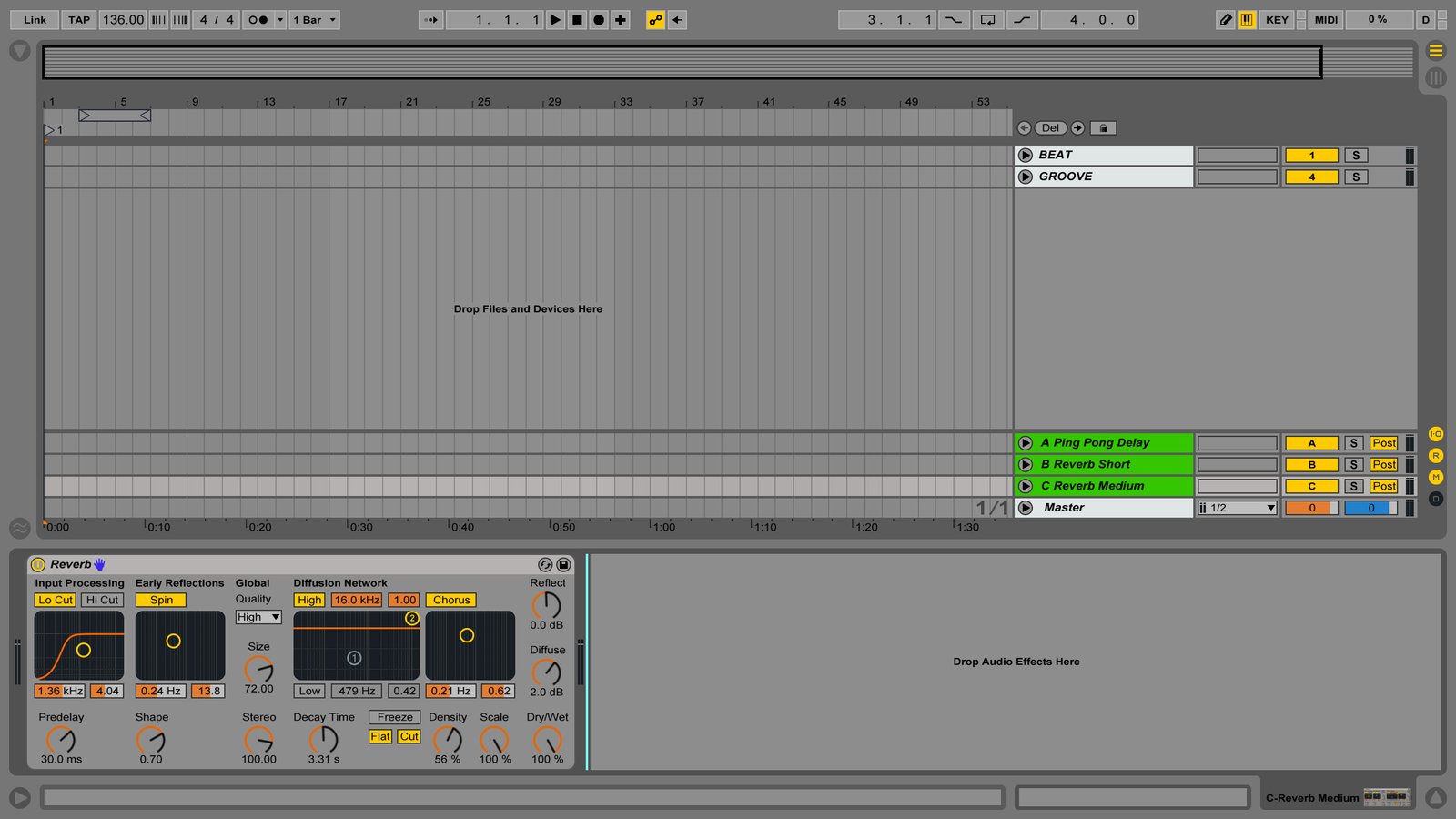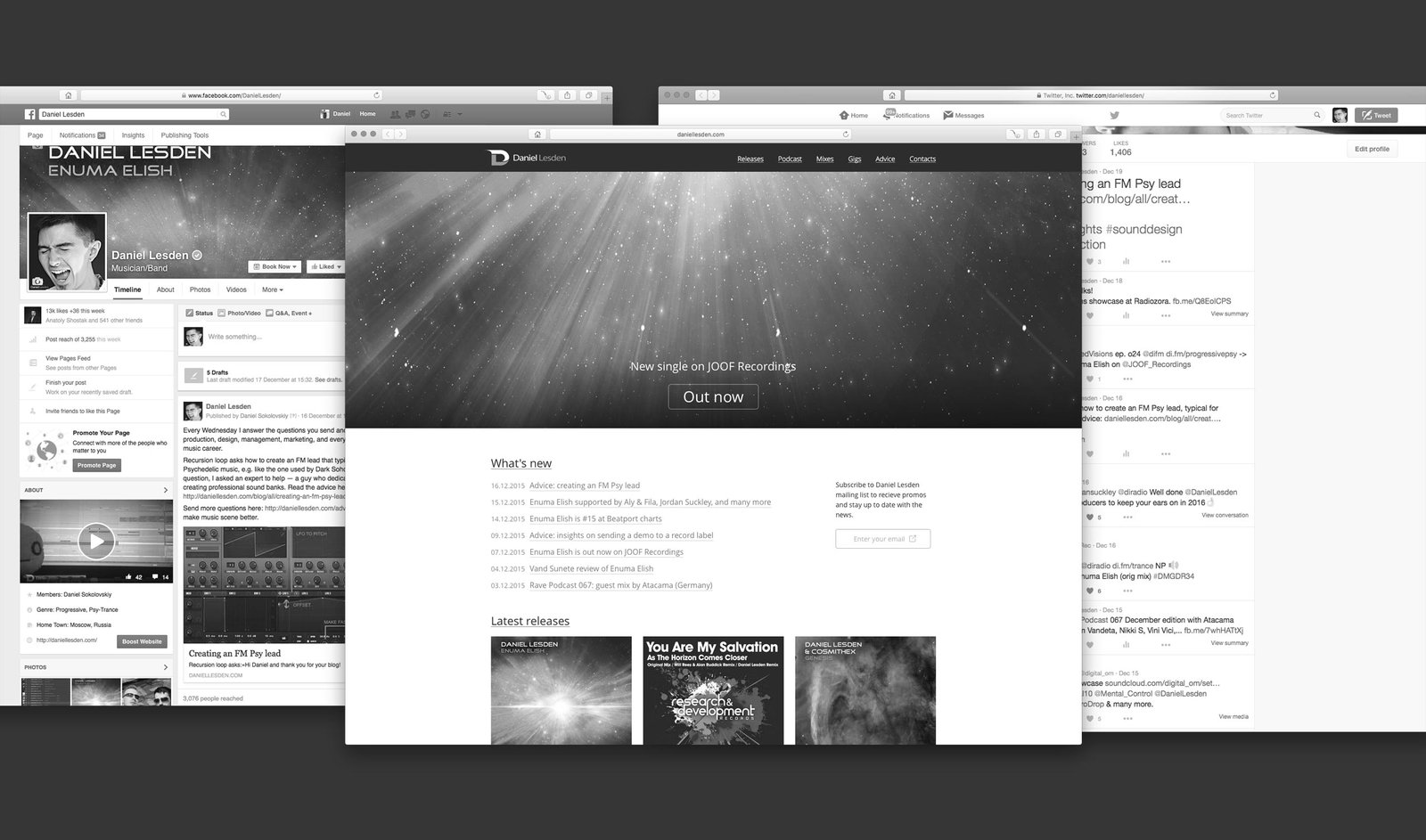Insights on sending a demo to a record label
And how to increase chances for a response

Hi Daniel, as far as I know you are an A&R at JOOF. Can you share some insights on sending demo, how to increase chances for reply, what are common mistakes and how to avoid them?
Brian Timms
It’s almost a year now since I’ve joined JOOF Recordings as an A&R Manager. It’s not much yet, but enough to see the picture from both camps. Brian, I’ll be glad to share my experience and try to answer your questions.
Do research
Surprisingly, how often producers send non-format tracks that don’t match labels genre. it may sound obvious, but first of all, do a little research before submitting a demo, make sure it is totally suit to style and concept of the label.
Some producers use mass mailing in hope that at least some label will pick their track up, but I assure you, chances to get released on a decent label by mass mailing are very, very low. Unless you want to get picked by “some” label that probably doesn’t really care about your music.
Personalize
In addition to the previous point, I advise personalizing your submission. Rather than simply say “Hi, here is my demo”, which may indicate that you probably sent this demo to other labels as well, add that particular label name in the subject line, or in the track title, or in track description, or wherever.
This little trick instantly gives a feeling of personal demo sent specifically for this label. And this is important. If you don’t care on which label you want to be released, then most likely label won’t care much about you either.
Use official contact
Pretty much all the people in the music industry have public accounts: on Facebook, Twitter, SoundCloud, Google+, and other social media. But the fact that you know these accounts, and each has a “send a message” button, doesn’t mean that labels would be happy to receive your demos there. In fact, it might be quite the opposite.
Personal and business communication are different things, and not all people like to mix it together. I advise to respect the privacy and do not send demos in personal messages on social media.
Instant messengers vs. email for business communication
For instance, Facebook has a sort of protection mechanics, and once a person reached out a certain amount of friends, he no longer receives notifications about new messages and friends request. This said, sending a demo via Facebook is not only disrespectful in terms of business ethics, but also has a very high chance that your messages will not be visible, at all. Think about it.
I recommend using the label’s official contact for demo submission instead. Go to the label’s website or Facebook page, open contacts section, check the procedure. If they accept demos via the form on their website only, then send via the form. If they ask to send an email to a specific address — send an email to that address.
Send links, not files
Never ever attach audio files to the email message. Firstly, because some mail servers and filters have a limit on incoming file size, you risk that your message won’t be delivered at all. And secondly, well, it’s a question of business ethics.
I recommend uploading your files to one of the trusted and reliable platforms, such as SoundCloud, Dropbox, Google Drive, or WeTransfer. Make sure to name files properly with artist name and track title, rather than something like “ID1.mp3”.
Personally, I prefer SoundCloud links most of all. But there are three things to keep in mind when sending over SoundCloud:
- Turn on download option. Yes, listening online is super handy, but sometimes a person who makes a decision may want to download this track to listen in another environment, let’s say on the phone while flying on the plane.
- Keep your uploads private. Labels want to get exclusive material that no one heard before, so public uploads significantly reduce your chances to get it signed.
- Make sure you send a private link. This one is a common mistake: to get a private link, you have to click on the “Share” button, and then copy text from the “Private Share” line. Double-check it: the link should include some few random digits at the end. If you just copy-paste regular link from your browser, everyone but you will see this:
soundcloud-not-found.jpg
Send a brief, but specific message
It’s surprising how often I receive emails like this:
Hi,
I hope you’ll like my new track!
Sent from iPhone
Who is the sender, what’s his artist name? What a track he sent, and for what purpose? You can only guess! Most likely, eventually such message will be simply ignored in favor of other incoming messages in the queue. Remember, credible labels with good reputation receive a huge amount of demos, dozens on a daily basis! But please don’t write a huge wall of text either.
The best practice is to briefly introduce yourself, tell something about this track and why do you send it. It’s okay to mention some other tracks or artists you like from the label, this shows you as a fan of the label, which is always a good sign.
A good message may look like this:

This is an example of a clear, simple and polite message, and you can be sure, this one gets higher priority to listen and reply among all incoming queue.
Feel free to use this as a template: one short paragraph about yourself, one or two sentences about this demo, and signature with the main website link.
Be patient
Don’t expect to get a reply back instantaneously. Good manners and business ethics implies to wait for the response at least within a week, this is one of the main difference between online chatting with friends and business communication.
Instant messengers vs. email for business communication
Keep in mind that A&R Managers are often acting artists that have a busy schedule with music production and touring.
It is okay to send a reminder if you haven’t got a reply in 2-3 weeks. But don’t fall into a trap of false illusions: probably, you won’t hear back at all. In one thing you can be sure: if your track is really amazing, well produced and totally fits the label, you will get a reply for sure.
Learn to accept “No”
Being an acting artist myself, I perfectly know how frustrating it might be. But don’t be afraid of “no” as an answer. In fact, this is the only answer that helps you grow up as a producer.
Frustration. How to move forward
Here at JOOF, we give advice and do a sort of mentoring to those artists in who we feel a potential. I’m sure other labels do the same. This is how all together we make our beloved music scene better.
I hope it helps. Good luck with your submissions!
Read also:
Insights on sending a demo to a record label, Part 2
“When sending a demo, should I do mixing and mastering by myself?”
On cover image: astronomical radio telescope at the Atacama Desert. Sometimes sending a demo to label is like send a radio signal to outer space.



John 00 Fleming has posted a video blog on exactly the same topic, I’ll put the link here for those who prefer to watch a video version.
As producer, I can tell you that this information is so useful. Thank you for help to everyone who are searching opportunities to be better artist.
Thank you for taking the time to write this helpful information.
How do I know which label to send my track to?
As the first heading says, do research: find similar artists to your music, look where they release. Then browse more releases from these labels, find out what’s their niche and who’s their target audience. Does it match to yours? I suggest thinking not only “where to release my music”, but also “why my music should be interesting to this particular label in the first place”.
This article titled as How To Send a Demo has also appeared on DJ Tech Tools. It includes a couple of new additions, so be sure to take a read this as well.